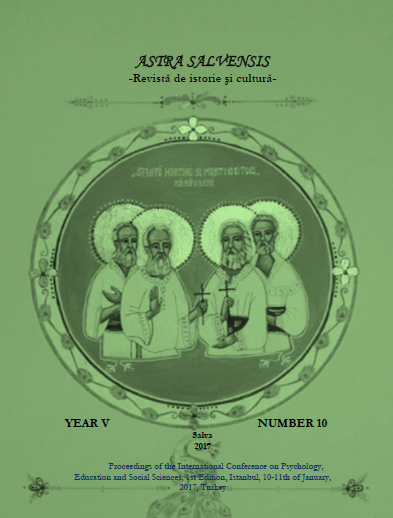Conceptual Opposition "Friend" -"Enemy" In Russian Medieval Period
Conceptual Opposition "Friend" -"Enemy" In Russian Medieval Period
Author(s): Svetlana Gregoryevna Safonova, Irina Valeryevna ErofeevaSubject(s): Politics / Political Sciences, History, Social Sciences, Language and Literature Studies
Published by: Asociaţiunea Transilvană pentru Literatura Română şi Cultura Poporului Român - ASTRA
Keywords: conceptual opposition; language picture of the world; semantics; the Middle Ages; Russian annals;
Summary/Abstract: The study of the Russian mentality development origin is in the focus of many modern studies in linguistics, cognition science, cultural studies and sociology. The article considers one of the key oppositions of the Russian worldview "friend" - "enemy" and the specificity of its representation in the language picture of the world of a medieval man. In order to study it, various methods were used, including the method of conceptual analysis, a descriptive method, including the analysis of lexicographic sources, and the method of contextual analysis. It was determined that the schematism of a man's image in the linguistic picture of the medieval world determined the great sociological development of the concepts "friend" and"enemy" in the Old Russian consciousness. This opposition was primarily associated with the implementation of military or social relationships idea and much less often with interpersonal relations. The article describes the derivations from the foundations of the friend and the enemy, their synonymous parallels were revealed, and the semantic specialization of each lexical unit and the peculiarity of the syntagmatic relations were determined. The results of the study are important to develop the picture of the historical evolution concerning the notion of friendship in Russian linguistic consciousness, to understand the semantic shifts in the meaning of lexemes representing an opposition under study. The reinterpretation of friendly relations took place in the Russian worldview. They were understood as a state inherent to the masses of people, to the perception of friendship as a deep feeling related with the spiritual sphere of a man. The results of the study are significant in linguistic, cultural, psychological and cognitive relationships.
Journal: Astra Salvensis - revista de istorie si cultura
- Issue Year: V/2017
- Issue No: 10
- Page Range: 199-204
- Page Count: 6
- Language: English

